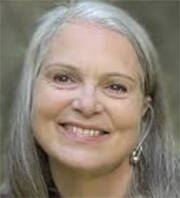Leslie Schneider was hoping to get five talking points that would be easy to remember regarding racial equity.
“The values are bigger than five things,” Olivia Hall, a member of the Bainbridge Island Racial Equity Advisory Committee, told the City Council June 18.
She said to distill the issue would lessen its impact and “not provide the depth for the issue that we’re dealing with. The work that we’re doing is not easy. We learn through courageous conversation with each other.”
Schneider said she just wanted REAC to come up with something that could be used to make sure everything the city does is done with an equity lens. She was afraid it would not be used if it was too complicated. She said she’d like to be able to memorize tips on why we need equity. The concept could help her visualize the larger toolkit REAC plans to develop to help the city make policy choices.
Mayor Joe Deets asked for a timeline for such work. Hall said she hopes by next year, but REAC will be working in conjunction with the Climate Action Committee.
Deets said the work BI is doing is ground-breaking. He pointed out the Association of Washington Cities document the council looked at had no mention of equity. “I found that astounding,” Deets said. “Some things are gelling here on Bainbridge that are not elsewhere.”
Regarding the city’s Comprehensive Plan, deputy mayor Jon Quitslund said the “equity lens is going to be front and center…—not just in principles but throughout.”
He added that the Puget Sound Regional Council also is emphatic about equity training. “We will be learning by doing how to employ the language and principles and decision-making points.”
In her presentation, Hall told councilmembers that REAC accomplishments last year included: being involved in the hiring of the city’s first Equity and Inclusion manager; organized workshops around race equity; staffed the Farmers Market booth; helped plan Juneteenth, Martin Luther King and Indigenous Peoples day celebrations; helped with BI Reads for Justice; drafted racial equity lens criteria used in city-related decision making; and recommended zero emissions hand tools law.
It also was involved in affordable housing; planning commission interviews; Ted Spearman Justice Center; Winslow SubArea Plan; met with police chief and city manager; met with community leaders; engaged with BI High School youth groups; and responded to community instances of racism and bias.
For the next year, it plans to continue many of those things along with: collaborate with Equity and Inclusion manager on finalizing Race Equity Lens for council adoption; encourage council to apply that lens to policy decisions; produce community engagement such as focus groups, equity-based trainings; sack lunch discussions and educational events; send recommendations to council regarding Comp Plan and race equity; and consider youth engagement on REAC.
DRB
Todd Thiel of the city’s Design Review Board gave a similar report. He said it only had six meetings as participation from members was down. Development projects reviewed last year were: Wood Avenue Cottage, Housing Resources Bainbridge at Ericksen, Clark Construction office, Pippinger subdivision, Deercliff Community, Nishi Gardens, Perilstein Kallgren and Pleasant Beach Village. Several projects addressed climate and housing priorities identified by the City Council.
For the coming year, it hopes to review more projects and work with city staff to make changes according to House Bill 1293. By June 2025 design review will happen after permit submittal, not before, and the DRB manual will be changed to ensure standards are objective.
Councilmember Clarence Moriwaki praised the DRB for its work on the Winslow Mall. Many said their design recommendations were spot on and their ideas valuable.
“It took real design dialogue to make that happen. It was rewarding for us all,” Thiel said.
He said the DRB would like to be more involved than usual in the development of affordable housing at the old police station site. Asked what that would entail, Thiel said, “We’re resources for questions,” he said, adding many on the board are professionals. “We’re here to help.”
Deets said he’d like to incorporate their expertise, but would like to do it without burdening the process.
Quitslund said while he was on the planning commission he saw the DRB become increasingly effective. “Streamlining the review process was good for everybody.” He called the Fundamentals of Design for Bainbridge a “treasure of our values.” He said it’s good for those behind projects because it describes “meeting the expectations of good design.”



